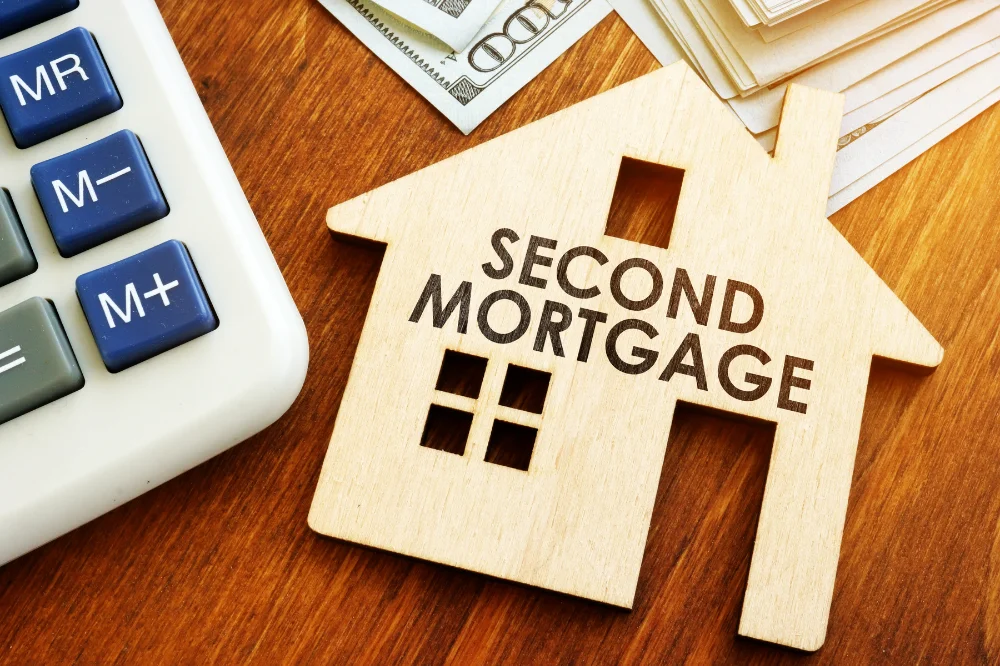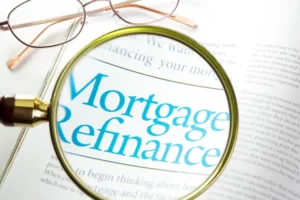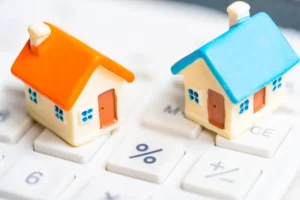A second mortgage is a type of loan taken against a property that is already mortgaged. Essentially, it allows homeowners to borrow money by leveraging the equity they have built in their home. Equity is the difference between the current market value of your home and the amount you owe on your first mortgage. For example, if your home is valued at $400,000 and you owe $250,000 on your mortgage, you have $150,000 in equity that can potentially be accessed through a second mortgage.

Types of Second Mortgages
There are two primary types of second mortgages:
- Home Equity Loan: This is a one-time, lump-sum loan that comes with a fixed interest rate. Borrowers repay this loan through monthly payments over a predetermined term, usually ranging from 5 to 30 years. Home equity loans can be a great option for homeowners who need a specific amount for a defined purpose, like renovations.
- Home Equity Line of Credit (HELOC): This is a revolving credit line based on the equity in your home. It operates similarly to a credit card, where you can borrow as needed, up to a limit. HELOCs usually have variable interest rates, meaning your payment amounts can fluctuate over time. This option provides more flexibility, as you can withdraw funds as required and only pay interest on the amount borrowed.
How Do Second Mortgages Work?
The Process of Obtaining a Second Mortgage
Obtaining a second mortgage involves several steps:
- Determine Your Equity: The first step is calculating how much equity you have in your home. Many lenders will allow you to borrow up to 80% of your home’s equity, but this varies by lender.
- Choose a Lender: Research lenders and understand the types of second mortgages they offer. You may consider traditional banks, credit unions, or private lenders.
- Apply for the Loan: Submit your application along with necessary documentation. This typically includes proof of income, details about your current mortgage, and information about your credit history.
- Property Appraisal: Most lenders will require a professional appraisal to determine the current market value of your home. This helps them decide how much they are willing to lend you.
- Closing the Loan: If approved, you will review and sign the loan agreement. After closing, the funds will be disbursed, and you’ll begin your repayment.
Interest Rates and Terms
Interest rates for second mortgages tend to be higher than those for primary mortgages because they come with more risk for lenders. While primary mortgages are secured by the entire property, second mortgages are subordinate, meaning they are repaid only after the first mortgage in case of a default.
Loan terms can vary widely, typically ranging from 5 to 30 years. It’s essential to compare rates and terms from different lenders to ensure you get the best deal.
Benefits of Second Mortgages
- Access to Capital
Second mortgages provide a significant source of capital for homeowners. Whether you need money for home improvements, education expenses, or a family emergency, a second mortgage can provide a lump sum or ongoing access to funds.
- Potential Tax Benefits
In Canada, the interest on a second mortgage may be tax-deductible if the borrowed funds are used for investment purposes. This can include investing in a rental property or funding education costs. It’s always wise to consult with a tax advisor to understand how this could apply to your situation.
- Flexible Use of Funds
One of the biggest advantages of a second mortgage is the flexibility of how you can use the funds. Unlike some loans that are earmarked for specific purposes, second mortgage funds can be applied to various needs, allowing for financial freedom.
Risks Associated with Second Mortgages
- Increased Debt Burden
Taking on a second mortgage adds to your overall debt load. It’s crucial to assess your current financial situation and ensure you can handle the additional monthly payments. If your financial situation changes, this added burden could lead to significant stress.
- Risk of Foreclosure
If you fail to keep up with the payments on your second mortgage, the lender has the right to foreclose on your property. This is a severe consequence and should be carefully considered before taking out a second mortgage.
- Impact on Credit Score
Applying for a second mortgage can impact your credit score. Lenders will conduct a hard inquiry on your credit report, which can lower your score temporarily. Additionally, taking on more debt could affect your credit utilization ratio, potentially leading to further decreases in your credit score.
When to Consider a Second Mortgage
- Home Renovations
If you’re looking to enhance your home’s value, a second mortgage can be a great way to fund renovations. Upgrading your kitchen, adding a bathroom, or finishing your basement can yield a substantial return on investment when it comes time to sell.
- Debt Consolidation
Many people choose to use second mortgages for debt consolidation. By paying off high-interest debts with a lower-interest second mortgage, you can simplify your payments and potentially save money in the long run.
- Major Life Events
Second mortgages can provide much-needed funds during significant life events, such as starting a business, covering medical expenses, or supporting a child’s education. It’s important to ensure that your financial situation allows for these additional payments, especially during transitional periods.
Alternatives to Second Mortgages
- Personal Loans
If you don’t want to leverage your home, personal loans are a viable alternative. These loans typically offer fixed amounts and fixed rates, allowing for predictable monthly payments without risking your home.
- Home Equity Lines of Credit (HELOCs)
HELOCs offer a flexible alternative to traditional second mortgages. Since you only pay interest on the amount you draw, they can be more cost-effective if you only need to borrow funds sporadically rather than all at once.
Choosing the Right Lender
Factors to Consider
When selecting a lender for your second mortgage, consider the following factors:
- Interest Rates: Compare the rates offered by various lenders to find the most competitive option.
- Terms and Conditions: Look for favorable terms regarding repayment and penalties for early repayment.
- Customer Service: Research the lender’s reputation for customer service, as this will impact your overall experience.
Comparing Offers
Don’t settle for the first offer you receive. Take the time to compare different lenders and their products. Use online calculators to estimate potential monthly payments and total costs over the life of the loan.
Conclusion
Understanding second mortgages is essential for homeowners looking to leverage their property’s equity wisely. While they offer access to significant funds and flexibility, they also come with risks that can impact your financial stability. Always consider your unique situation, seek professional advice, and carefully evaluate your options before committing to a second mortgage. Whether for home renovations, debt consolidation, or other life events, second mortgages can be a valuable tool when used responsibly.
FAQs
1. What is the maximum amount I can borrow with a second mortgage in Canada?
The amount you can borrow typically depends on your home equity and lender policies. Many lenders will allow you to borrow up to 80% of your home’s appraised value minus your first mortgage balance.
2. Are second mortgage interest rates fixed or variable?
Second mortgage interest rates can be either fixed or variable, depending on the type of mortgage you choose. Fixed rates provide predictable payments, while variable rates may offer lower initial rates that can fluctuate.
3. Can I get a second mortgage if I have bad credit?
Securing a second mortgage with bad credit can be challenging, but it is possible. Some lenders specialize in loans for individuals with less-than-perfect credit. However, you may face higher interest rates.
4. How long does it take to process a second mortgage?
The processing time for a second mortgage can vary by lender, but it typically takes anywhere from a few days to several weeks, depending on factors such as documentation, appraisal, and lender workload.
5. Do I need to pay for an appraisal when applying for a second mortgage?
Most lenders require an appraisal to assess your home’s current market value. This cost may be your responsibility, so be sure to factor it into your overall expenses when considering a second mortgage.




